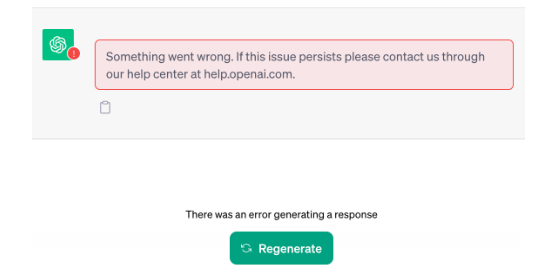Contents:
This week, OpenAI has dealt with “periodic outages” due to distributed denial-of-service (DDoS) attacks targeting its API and ChatGPT services.
While the company hasn’t immediately disclosed the exact cause of these issues, OpenAI has confirmed their connection to ongoing DDoS attacks.
We are dealing with periodic outages due to an abnormal traffic pattern reflective of a DDoS attack. We are continuing work to mitigate this.
Incident Report for OpenAI (Source)
Users affected by these problems have encountered error messages like “something seems to have gone wrong” and “There was an error generating a response” from ChatGPT.
This follows a series of recent incidents, including a significant ChatGPT outage on Wednesday, partial ChatPT outages on Tuesday, and increased error rates with Dall-E on Monday.
OpenAI has displayed a banner on ChatGPT’s interface, informing users of the high demand and assuring them that efforts are underway to improve system scalability.



 Network Security
Network Security
 Vulnerability Management
Vulnerability Management
 Privileged Access Management
Privileged Access Management
 Endpoint Security
Endpoint Security
 Threat Hunting
Threat Hunting
 Unified Endpoint Management
Unified Endpoint Management
 Email & Collaboration Security
Email & Collaboration Security










